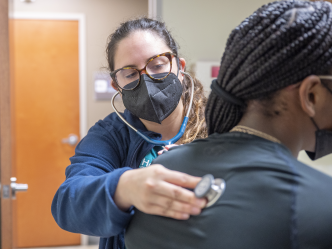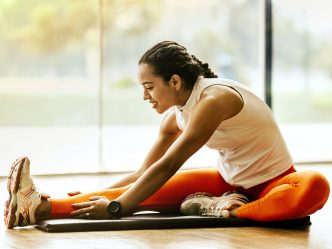Summer is here and the warmer temps make this a great time for running outdoors. But, before you head to your next race, Augusta University Sports Medicine offers the following tips to help you prepare and avoid injuries.
- Fuel up the tank. Consume a carbohydrate-rich meal for a few evenings before the marathon in order to provide your body with the needed calories and energy to keep you going. But don’t overeat or drink much alcohol on the night before the race.
- Stick to the routine. Race day is not the day to break in a new pair of running shoes or new clothes. Also, don’t wear shoes that are worn out. The average life of running shoes is about 400 to 600 miles.
- Warm up properly. A proper warm-up can increase the blood flow to the working muscles reducing the likelihood of muscle stiffness or injury. Additional benefits of warming up include physiological and psychological preparation.
- Stretch. Don’t rush this, and include all joints and extremities. Each stretch should be held in place for about 30 seconds. Proper stretching can prevent strains and other injuries.
- Stay hydrated. Water is the key for efficient running and keeps your body in prime condition. Even if you are not thirsty, drink lots of water. Fluids are also essential for recovery after the race. Drink a combination of water and sports drinks to replenish lost fluids, sodium and electrolytes.
- Finish strong. Don’t come to a sudden stop when you cross the finish line. Doing so can cause your blood pressure to drop too quickly, causing dizziness and even fainting. A slow jog or walk will help you transition safely to a resting state.
- Stretch and ice down. After you cool down, thoroughly stretch your legs so your muscles don’t get stiff. Icing them every few hours for about 15 minutes at a time will help relieve inflammation and muscle pain.
- Taper your exercise regimen. Your body needs time to recuperate. So avoid a long-distance run or intense workout for about two weeks following race day. Try light runs and cross training instead. Then you can gradually work back up to higher intensity.
Augusta University Sports Medicine follows a comprehensive approach, integrating world-class clinical care, leading-edge research and training programs designed to keep patients active and injury-free.
The center is staffed by board-certified sports medicine physicians and orthopedic surgeons; licensed physical therapists, specializing in sports and activity-related injuries; and certified athletic trainers, who work with area teams and organizations to evaluate and diagnose musculoskeletal problems.
Augusta University Sports Medicine offers educational, preventive and treatment services for people of all ages and activity levels in a patient- and family-centered care environment. Learn more about Augusta University Sports Medicine.
 Augusta University
Augusta University




